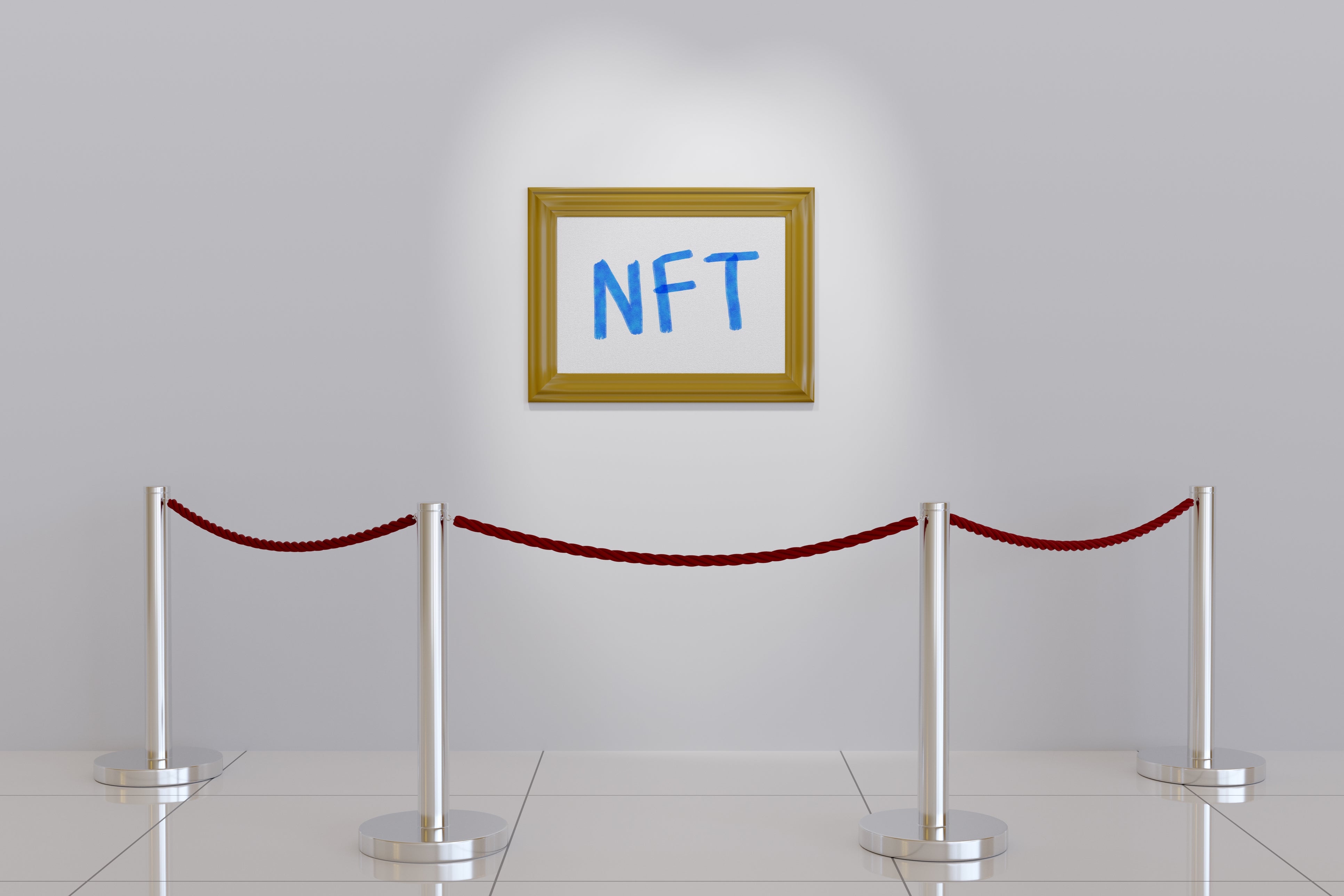Hindsight’s a wonderful thing, isn’t it? The world is full of people kicking themselves for not buying bitcoin ten years ago, when a fiver's stake could have set them up for life. And now many wannabe billionaires are turning to NFTs, which some have tipped as the next big investment opportunity.
So what are NFTs? The initials stand for non-fungible tokens and they are essentially digital certificates of authenticity that are attached to a digital asset - generally a photograph, a GIF or the like. Confusingly, though, that asset doesn't have to be uniquely available to the owner. Indeed, the most-publicised NFT so far - sold by Christie's in March - relates to a digital artwork that's plastered all over the internet for all to see.
Metakovan, the founder of NFT fund Metapurse, bought “The First 5000 Days” NFT, for $69 million. The work, by the digital artist Beeple, became one of the most expensive artworks ever sold by a living artist. But despite the eye-watering price tag, they are convinced they got a good deal. "This is the crown jewel, the most valuable piece of art for this generation. It is worth $1 billion," says Metakovan.
But is it?
While $69 million isn't far behind the prices paid for works by David Hockney and Jeff Koons, it's probably fair to say that the value of this particular work doesn't derive from its artistic merit but, rather, from the idea that it's unique. However, like other highly-priced NFTs, such as Twitter CEO Jack Dorsey's first tweet, The First 5000 Days itself is as freely available to you and me as it is to its official owner.
Edmund Schuster, associate professor of Law at the London School of Economics, strongly disagrees with Metakovan. He argues a creation can only have real value if it is scarce.
"The laws of physics enforce the scarcity of physical objects, but the principles of computer science mean that there simply is no meaning to 'original' in relation to digital art, or indeed information more generally," he says. "This is also why there is a legal principle that you cannot have property rights in pure information. What we do with NFTs, in a way, is to artificially and arbitrarily assign to one person the right to say that they have the original, even though we know that this has no real meaning."
Artificial intelligence analyst firm AI Multiple shares this doubt over ownership. "NFTs certify a users’ ownership of an instance of a digital file. Though that instance is unique, other unique instances can easily be created," it points out in a report. "For example, buying Jack Dorsey’s first tweet is like buying a copy of his tweet with a unique and non-alterable ID number. So the owner of the NFT does not own the original tweet."
NFTs already have a poor record as an investment. Back in 2017, there was quite a bit of excitement around Cryptokitties – digital cats that became collectibles. Enough hype, indeed, to see trading volumes high enough to briefly crash the Ethereum blockchain, but not enough to stop the price plummeting over the next couple of years.
The general NFT market has also experienced significant price drops. Between February and April, for example, the average price of an NFT fell from around $4,000 to just $1,400. However, in a nod to the 17th century Tulipmania bubble and crash, a lack of real value in no way means that people won't be prepared to pay in the short term. In March, research firm Benzinga polled traders and investors on their attitudes to NFTs. It found more than a third saw them as a valid part of the art market, compared to 28% who believed they were a bubble.
However, the report warns that most buyers are coming from outside the established art industry. That’s a sign that NFTs are being seen as a way of making money, rather than a way of owning art. It concludes, "If the hype surrounding NFT art cools off and causes a decline in value, users could view it as a fad and call it quits."
Even Beeple has his reservations, telling the New York Times, "If it’s not a bubble now, I do believe it probably will be a bubble at some point, because there are just so many people rushing into this space."
Meanwhile, those buying NFTs would do well to consider the security of their investment. NFTs are only as real as the computer server they're held. According to specialist website Check My NFT, many have gone down already, with their owners now seeing nothing more than an error message. If that’s not enough of a red flag, at least one NFT exchange has already been hacked, with thousands of NFTs stolen.
There's no doubt that some people will make significant amounts of money by buying and selling NFTs, just as they did buying and selling tulip bulbs in the 17th century. But that alone doesn't make them a good long term investment. Before you launch headlong into the NFT market, ask yourself how much you’d be prepared to pay right now for a tulip bulb.

